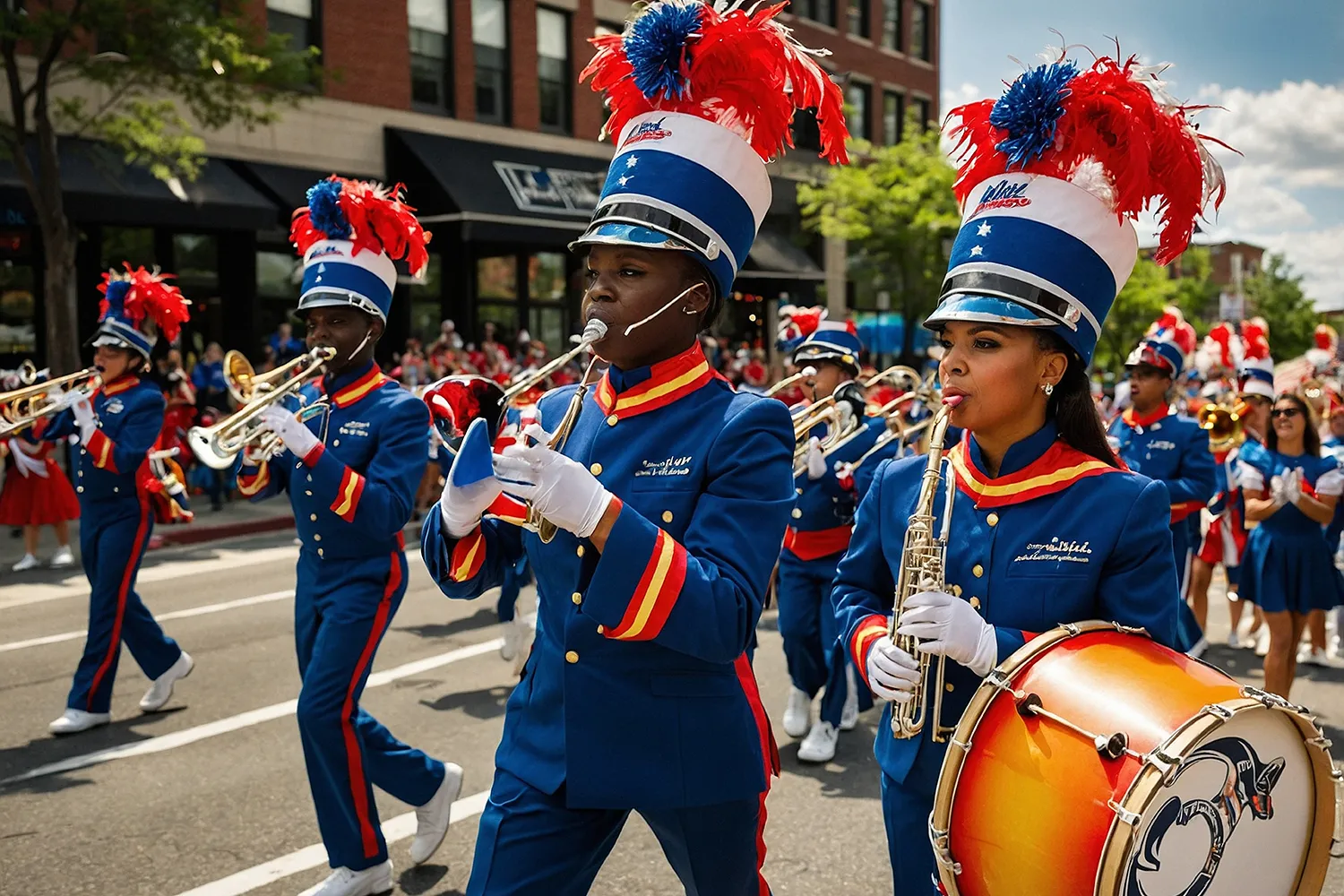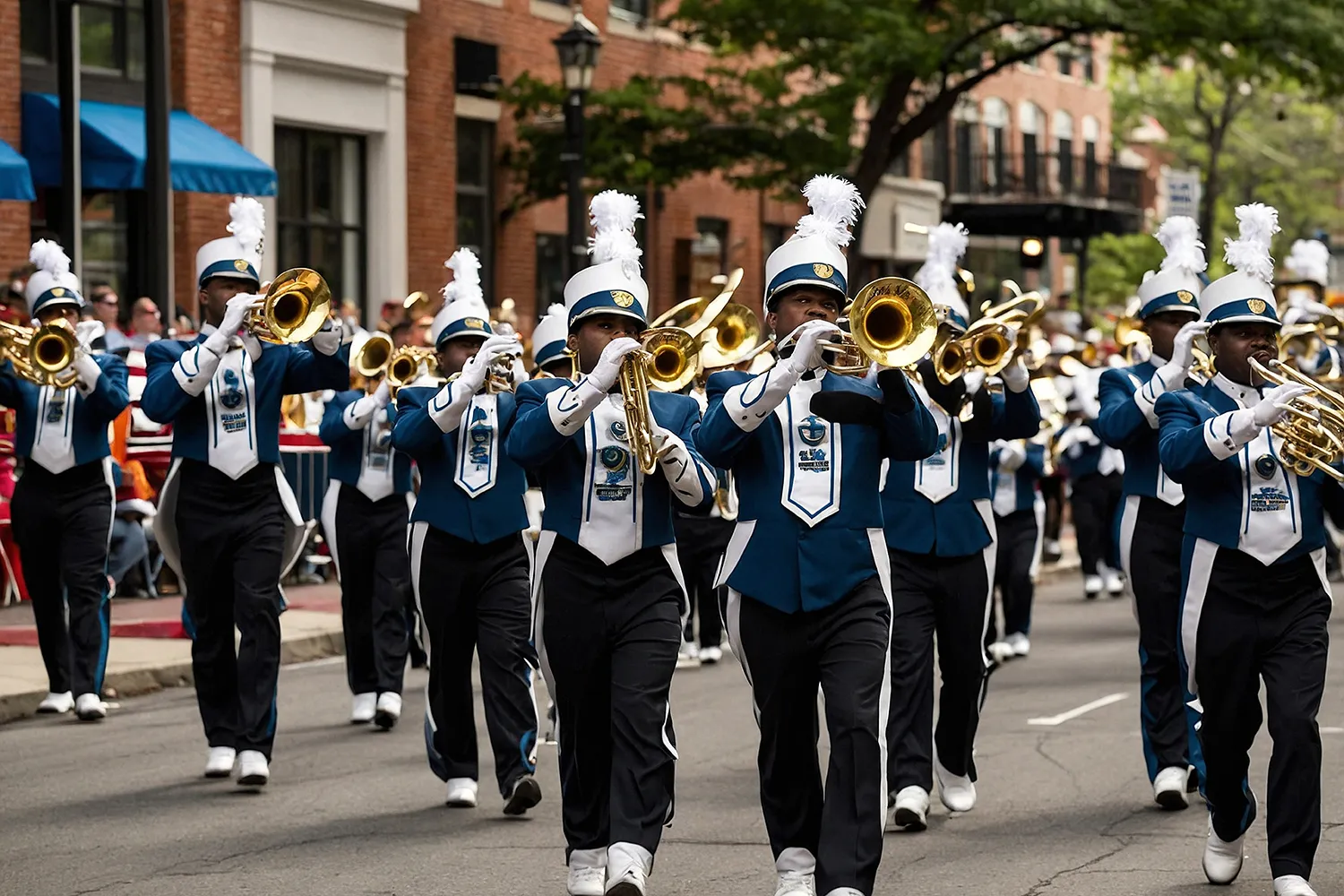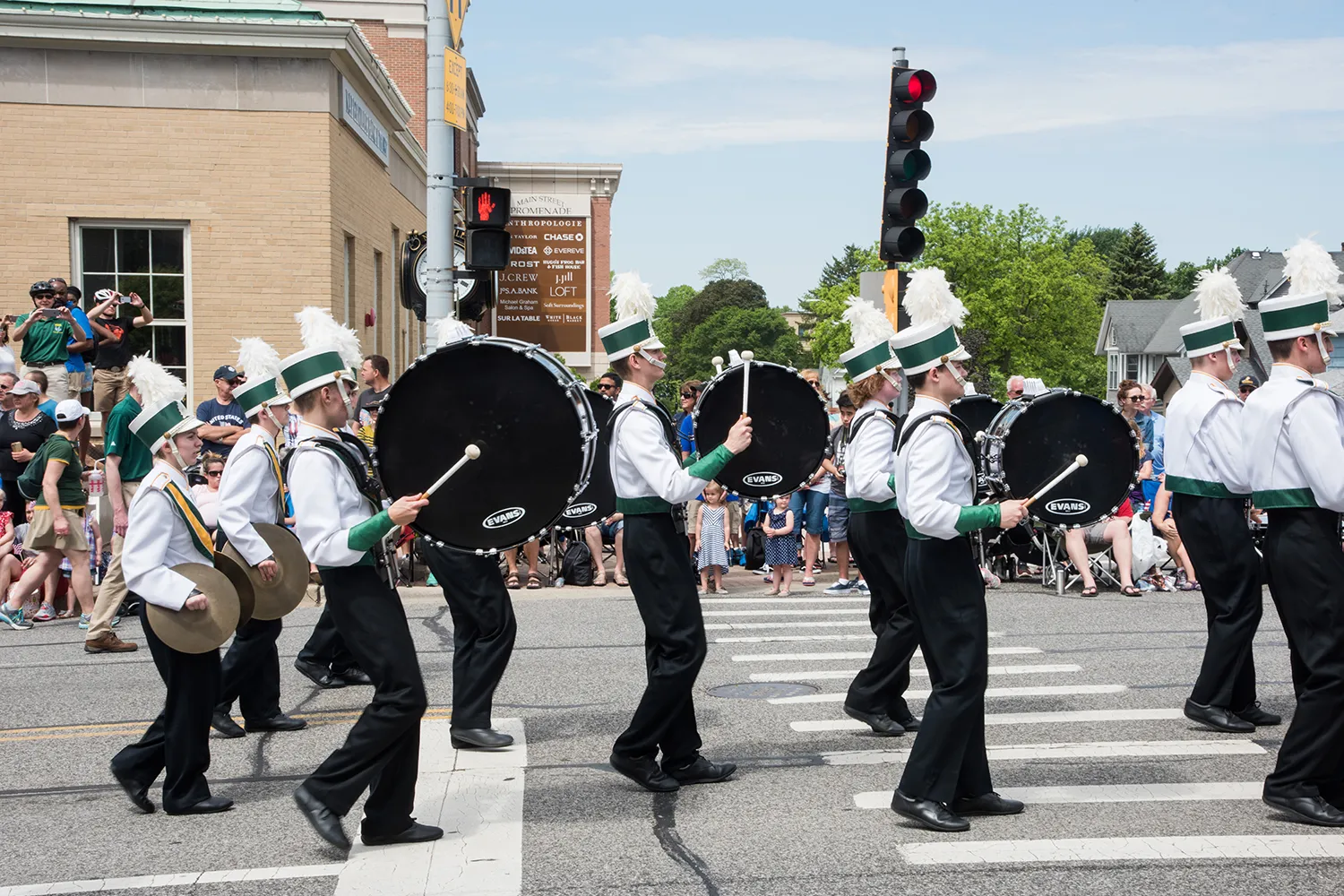November 21, 2025
Student Performances Tours: Showcasing Talent on Educational Stages in 2025

The Challenge of Combining Artistic Excellence with Educational Travel
Student performing groups face unique challenges when planning travel that must balance artistic performance obligations with educational experiences and logistical complexities that traditional academic trips never encounter. These student performances tours require coordination of rehearsal spaces, performance venues, specialized equipment transportation, and scheduling that accommodates both artistic preparation and sightseeing opportunities. The complexity often overwhelms directors accustomed to local performances but unfamiliar with the specialized requirements of traveling performing ensembles.
The problem extends beyond logistics to encompass the challenge of creating tours that justify significant investments through meaningful artistic development rather than simply performing in different locations. Many student groups discover that poorly planned student performances tours become exhausting obligations that leave students with little time for cultural exploration or educational experiences, undermining the broader educational purposes that should distinguish performance tours from simple concert series. Professional performance tour planning solves these challenges by integrating artistic excellence with comprehensive educational experiences while managing the specialized logistics that traveling performing groups require.

Combining Artistic Development with Educational Travel
The first challenge that student performance tours must address involves creating programs that advance artistic development while providing the cultural and educational experiences that justify travel beyond local performance opportunities. This integration solves the problem of performance tours that focus exclusively on concerts without leveraging travel opportunities for broader educational purposes. Successful performance tours incorporate attendance at professional performances allowing students to experience world-class artistry in their disciplines, visits to renowned performance venues including historic theaters and concert halls where legendary artists have performed, and exposure to different artistic traditions and performance styles that expand students’ understanding of their art forms.
Educational components should connect directly to students’ artistic disciplines while broadening their cultural awareness and historical understanding. Music groups benefit from visits to instrument museums, composers’ homes, and locations significant to music history. Theater groups gain value from backstage tours of professional theaters, attendance at diverse theatrical productions, and exploration of dramatic literature connections to historical periods and locations. Dance ensembles appreciate opportunities to study different dance traditions, attend professional dance performances, and explore cultural contexts that influenced various dance forms. These educational experiences transform performance tours from simple concert trips into comprehensive artistic and cultural education that influences students’ development as performers and informed audience members.

Venue Selection and Booking Strategies
Venue selection represents a critical challenge for student performances tours as performance spaces must provide appropriate acoustics, staging, and technical capabilities while remaining accessible within program budgets and schedules. Poor venue selection undermines performance quality while creating frustration for students who have prepared extensively only to perform in spaces inadequate for showcasing their talents. Professional venue selection solves these problems by identifying performance spaces appropriate for student group sizes and repertoire, considering acoustic properties essential for music groups or stage dimensions necessary for theater and dance, evaluating technical capabilities including sound systems, lighting, and backstage facilities, and assessing audience capacity and accessibility for community members or other student groups.
Booking strategies should begin early as desirable venues often require reservations six to twelve months in advance, particularly during peak travel seasons when multiple groups compete for limited performance spaces. Professional tour operators maintain relationships with venues accustomed to hosting student groups, streamlining booking processes while ensuring venues understand student ensemble needs. Venue diversity enhances tour experiences by providing different performance contexts including formal concert halls offering prestigious settings, community venues fostering intimate connections with local audiences, outdoor amphitheaters creating unique performance atmospheres, and exchange performances at schools or universities facilitating peer interactions. These varied venues provide students with diverse performance experiences while demonstrating how different spaces influence artistic presentation and audience engagement.
Rehearsal and Performance Scheduling
Balancing rehearsal needs with performance schedules and educational activities presents ongoing challenges throughout student performances tours as groups must maintain artistic readiness while avoiding exhaustion that compromises performance quality or student enjoyment. Inadequate rehearsal time before performances creates anxiety and undermines confidence, while excessive rehearsal eliminates time for the educational and recreational experiences that should complement performance obligations. Strategic scheduling solves these challenges by incorporating warm-up and rehearsal time before each performance allowing groups to adjust to venue acoustics and address any concerns, building rest and recovery time between performances preventing exhaustion, scheduling lighter days following major performances allowing students to enjoy destinations without performance pressure, and coordinating rehearsal space access at hotels or nearby facilities when extended preparation proves necessary.
Performance scheduling should consider optimal timing that balances artistic presentation with practical realities. Evening performances typically attract larger audiences and create more formal atmospheres, though they consume entire days when accounting for preparation, performance, and post-performance activities. Afternoon performances allow evening free time for students while still providing meaningful performance experiences. Multiple performances during tours provide valuable repetition allowing groups to refine interpretations while building confidence, though excessive performance schedules create fatigue that diminishes quality and enjoyment. Most successful tours include two to four performances over week-long trips, providing meaningful performance opportunities without overwhelming students.
Competition and Festival Participation Opportunities
Participation in competitions or festivals during performance tours creates unique challenges and opportunities as these events provide external validation and motivation while introducing competitive pressures that may create stress or disappointment. Some directors avoid competitions entirely, preferring non-competitive performance opportunities that emphasize artistic expression over rankings. Others embrace competitions as motivational tools that encourage excellence while providing professional adjudication and feedback. Festival participation solves the challenge of finding meaningful performance contexts by connecting student groups with other ensembles in collaborative or competitive settings that demonstrate how their abilities compare to peers from different regions or countries.
Competition and festival selection should consider adjudication quality ensuring that feedback comes from respected professionals who can provide valuable insights, appropriate difficulty levels matching competitions to group abilities avoiding situations where students face unrealistic expectations, educational value beyond simple rankings including workshops, masterclasses, or performance opportunities, and alignment with group goals and director philosophies regarding competitive versus collaborative approaches. International festivals provide particularly valuable experiences by exposing students to different performance traditions and standards while building cross-cultural connections through shared artistic passions. These experiences often prove transformative as students recognize that music, theater, and dance transcend language barriers while connecting people across cultural differences.
Masterclass and Workshop Integration
Integrating masterclasses and workshops into student performances tours addresses the challenge of providing professional instruction and artistic development opportunities beyond regular school programming. These educational experiences solve the problem of performance tours that focus exclusively on concerts without leveraging travel to access expert instruction unavailable in students’ home communities. Masterclasses led by renowned performers, conductors, or choreographers provide students with professional insights and techniques while exposing them to different teaching approaches and artistic philosophies. Workshop experiences allow hands-on learning in specialized areas including vocal techniques, instrumental skills, acting methods, or choreographic processes that deepen students’ understanding of their art forms.
Professional instruction during tours proves particularly valuable as students often demonstrate heightened receptivity to learning when removed from familiar school environments and exposed to prestigious instructors whose expertise commands respect. These educational experiences complement performance obligations by improving skills students can apply immediately in upcoming tour performances while providing lasting benefits extending beyond travel. Integration strategies include scheduling masterclasses on non-performance days when students possess energy and focus for intensive learning, selecting instructors whose expertise aligns with group needs and repertoire, allowing adequate time for meaningful instruction rather than rushed sessions, and providing opportunities for students to ask questions and interact with professionals who can offer career insights and inspiration.
Balancing Performance Obligations with Sightseeing and Education
Creating appropriate balance between performance obligations and educational sightseeing represents an ongoing challenge throughout student performance tours as both components prove essential yet compete for limited time and student energy. Tours that emphasize performances exclusively miss opportunities for cultural education and memorable experiences that students will treasure for lifetimes, while tours that prioritize sightseeing over performance preparation compromise artistic quality and undermine the primary purpose distinguishing performance tours from general educational travel. Strategic balance solves this challenge by designing schedules that integrate both priorities rather than treating them as competing demands.
Successful integration strategies include scheduling major sightseeing on arrival days before performance pressures intensify, planning educational activities that connect to performance repertoire creating thematic coherence, incorporating lighter sightseeing on performance days avoiding exhaustion before concerts, and dedicating post-performance days to relaxation and exploration when students can fully enjoy destinations without artistic obligations. This balanced approach ensures that students experience comprehensive benefits of performance travel including artistic growth through performances and instruction, cultural education through destination exploration, and ensemble bonding through shared experiences both on and off stage.
Equipment Transportation and Logistics
Equipment transportation presents unique logistical challenges for student performances tours as instruments, costumes, props, and technical equipment must travel safely while remaining accessible for performances and rehearsals. Large instruments including string basses, tubas, or percussion equipment require specialized transportation arrangements, while delicate instruments demand protective cases and careful handling. Theater groups face challenges transporting costumes, props, and technical equipment, while dance ensembles must ensure appropriate flooring and sound systems at performance venues. Professional logistics management solves these challenges through charter buses with adequate storage for equipment, advance shipping of large items to venues when necessary, protective cases and packing materials preventing damage during transport, and coordination with venues ensuring necessary equipment availability including pianos, sound systems, or technical capabilities.
Airlines present particular challenges for groups traveling internationally as baggage fees for instruments can significantly increase costs while size restrictions may prevent certain instruments from traveling as checked baggage. Some instruments qualify as carry-on items requiring advance notification to airlines, while others require purchase of additional seats. Professional tour operators experienced with performing group travel understand these complexities and can navigate airline policies while minimizing costs and ensuring equipment arrives safely at destinations.
Building Ensemble Cohesion Through Shared Experiences
Performance tours provide unique opportunities for building ensemble cohesion as shared travel experiences, performance pressures, and artistic triumphs create bonds that strengthen musical, theatrical, or dance ensembles long after tours conclude. The challenge involves creating conditions that foster positive group dynamics while preventing conflicts or cliques that can undermine ensemble unity. Successful tours solve this challenge by incorporating team-building activities that bring students together outside performance contexts, celebrating ensemble achievements through post-performance gatherings or special meals, encouraging peer support and mentorship between experienced and newer members, and facilitating reflection opportunities where students can process experiences and articulate their growth.
The shared vulnerability of performing before unfamiliar audiences in new venues creates powerful bonding experiences as students support each other through nervousness and celebrate collective successes. These experiences often prove transformative for ensemble culture, creating cohesion that enhances subsequent performances and rehearsals throughout school years. Directors frequently observe that ensembles return from tours with strengthened commitment, improved focus, and deeper appreciation for collaborative artistry that elevates their programs to new levels of excellence.
Conclusion
Student performance tours in 2025 serve unique educational purposes beyond traditional academic trips by combining artistic development with cultural education while building ensemble cohesion through shared performance experiences. Through strategic venue selection, balanced scheduling, competition and festival participation, masterclass integration, appropriate balance between performance and sightseeing, professional equipment logistics, and intentional community building, these specialized tours provide transformative experiences that advance students’ artistic abilities while creating memories that inspire continued dedication to their art forms.
Group Travel Network specializes in student performance tours for bands, choirs, orchestras, theater groups, and dance ensembles at middle school, junior high, high school, and college levels. Their expertise in performance travel logistics ensures that every tour balances artistic excellence with comprehensive educational experiences while managing the specialized requirements that traveling performing groups demand in 2025.
Relax with our Student Travel Expertise .
We deliver stress-free student trips backed by an exceptional array of services you won’t find anywhere else:
- Stress-free, creative planning of customized itineraries
- Dedicated GTN Service host on every trip
- Extensive travel protection plan options
- Online, individual registration system
- Flexible payment plans and online payment options
- Bulk buyer discounts for great trips that cost less
Inclusion into #MyGTNFamily for life! (you don’t even have to remember our birthday!)
Spain
There is no place like Spain to offer a student performance opportunity or cultural student trip.
Myrtle Beach
All students love the beach! Especially a beach known for its 60 miles of pristine coastline.
Boston
Have your students experience colonial charm in the city that is considered the hub of New England.
London
Provide your student group with the “Royal” treatment! One of the world’s most recognized cities.
See What People Are Saying
“It has been my privilege to use Group Travel Network as the exclusive travel coordinator for my band for over 10 years. I can say, without doubt or hesitation, that GTN is, by far, the best travel company for student groups currently in existence. I have often said that I wouldn’t take my band across the street without GTN and that’s not far from the truth!”
“This was my first time using a company to plan our band trip. It was so easy working with Justin and Group Travel Network. We had to make several changes along the way, but they were accommodating changes and worked everything out for us. I would highly recommend using Group Travel Network.”
“What wonderful trip we had to NYC! Our group of 51 never missed a beat because of Group Travel Network and our wonderful guide, Tim. It was truly a theatre trip to remember! If you are looking for a travel company who really cares about the details, Group Travel Network is for you!”
